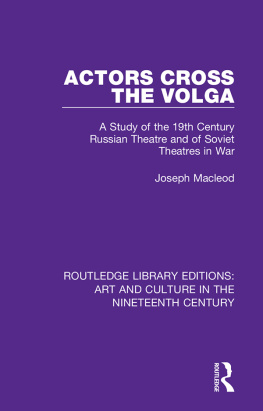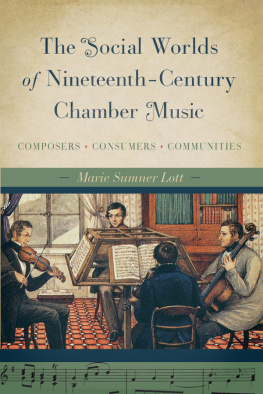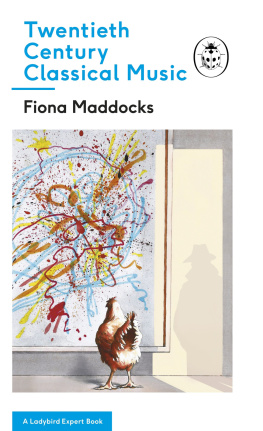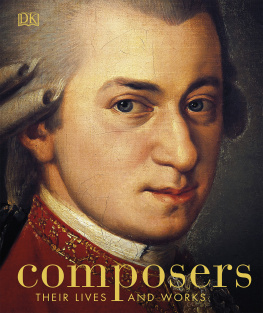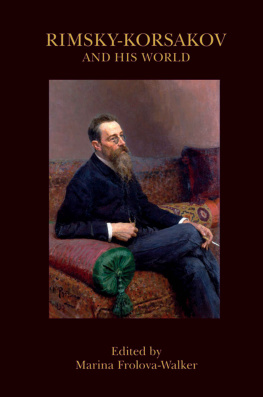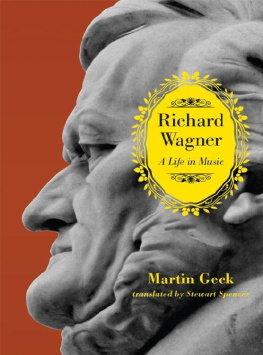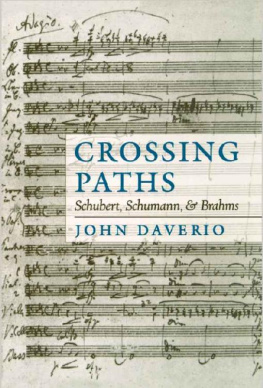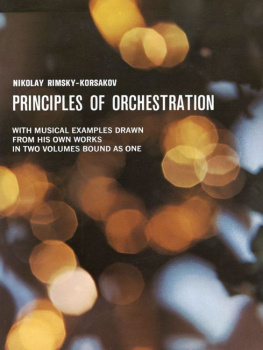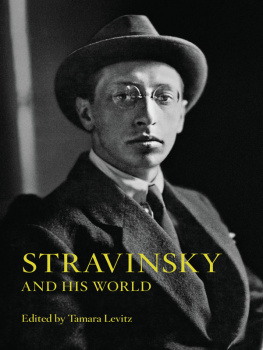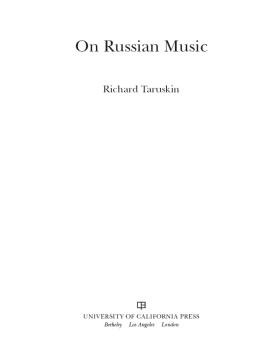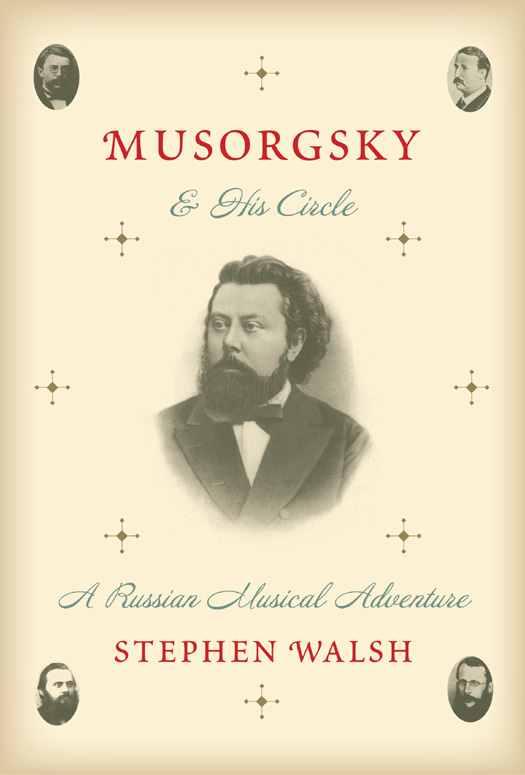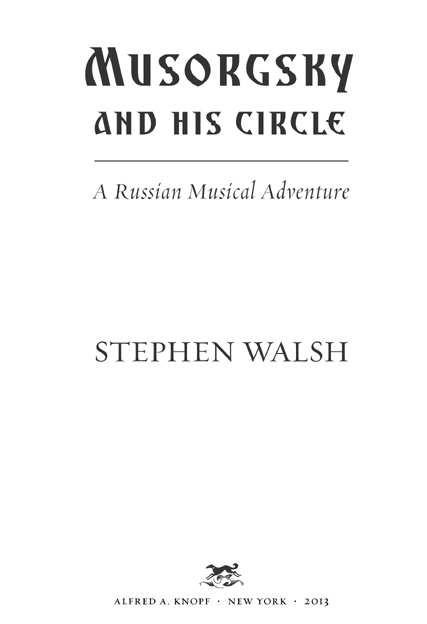THIS IS A BORZOI BOOK
PUBLISHED BY ALFRED A. KNOPF
Copyright 2013 by Stephen Walsh
All rights reserved. Published in the United States by Alfred A. Knopf, a division of Random House, Inc., New York. Simultaneously published in Great Britain by Faber and Faber Ltd., London.
www.aaknopf.com
Knopf, Borzoi Books, and the colophon are registered trademarks of Random House, Inc.
Library of Congress Cataloging-in-Publication Data
Walsh, Stephen, [date]
Musorgsky and his circle : a Russian musical adventure /
by Stephen Walsh.
pages cm
ISBN 978-0-307-27244-7 (hardcover)
ISBN 978-0-385-35048-8 (eBook)
1. Mussorgsky, Modest Petrovich, 18391881. 2. Moguchaia kuchka
(Group of composers) 3. ComposersRussiaBiography. 4. Music
Russia19th centuryHistory and criticism. 5. MusicRussia20th
centuryHistory and criticism. 6. Nationalism in music. I. Title.
ML390.W175 2013
780.92dc23
[B] 2013004600
Jacket images: (center) Modest Musorgsky from The Granger Collection, NY; (corners, clockwise) Nikolai Rimsky-Korsakov, Alexander Borodin, Csar Cui, and Mily Balakirev from DeA Picture Library / The Granger Collection, NY
Jacket design by Peter Mendelsund
v3.1
For Anthony Powers
It is strange to remember those thoughts and to try to catch
The underground whispers of music beneath the years
HENRY REED
Contents
BalakirevRussiaThe kuchka
Glinka and His Operas
Vladimir StasovBelinsky
MusorgskyBorodinDargomzhskyStudy with Balakirev
ChernshevskyStasov and theoryModes of nationalism
Anton RubinsteinThe RMS and the conservatoryReactions
OedipusKing LearA Prisoner of the CaucasusSongs and passions
MoscowFolk songHerzenEmancipationMusorgsky at the ministryRimsky-Korsakov
Wagner in St. PetersburgSerov and JudithHow the circle responded
The communeSalammbCui the music criticWilliam Ratcliff
Musorgsky songsRimsky-Korsakov returnsHis First SymphonyRognedaThe BogatyrsBalakirevs Folk-song collectionThe Stone Guest begun
Romances and song portraitsMusorgsky and politicsBalakirev in PragueThe kuchka named
Borodins First SymphonyTamaraSt. Johns Night on Bald MountainSadko
Balakirev at the RMSBerlioz in St. PetersburgThe classicistMore song portraitsThe Stone Guest and the circle
Musorgsky and childrenWith NyanyaMarriage
AntarTchaikovsky and the circleBorodin songsLohengrin at the Maryinsky
History playsThe Maid of Pskov begunBoris Godunov
William Ratcliff stagedPrince Igor conceivedPrince Igor droppedBalakirev dismissedIslameyThe Peep ShowThe Nursery
Balakirev in declineBoris rejectedBoris revisedThe Power of the FiendThe Maid of PskovBorodins Second Symphony
Professor Rimsky-KorsakovThe collective MladaThe Stone Guest stagedResearch on Khovanshchina
The Maid of Pskov stagedBoris excerptedWork on KhovanshchinaAngelo
Boris staged completeGolenishchev-KutuzovSunlessPictures from an Exhibition
Rimsky writes fugues and a string quartetPrince Igor resumedMore Khovanshchina
Musorgsky the idealist and the drinkerNaumovSongs and Dances of DeathRimsky-Korsakov as editor
Angelo stagedWork on Prince Igor and KhovanshchinaSorochints FairRimskys wind chamber music
Opinions of the kuchkaBalakirev risesMusorgsky sinksMay Night
Musorgsky as accompanistOn tour with LeonovaBorodins First QuartetPrince Igor continuedKhovanshchina almost finished
In Central AsiaA Fairy Tale and SinfoniettaThe Snow MaidenMusorgskys last days
Musorgsky buriedTamara completedBorodins Second Quartet and Third SymphonyGlazunov and BelyayevThe kuchka ends
Preface
The story of nineteenth-century Russian nationalism is one of the most fascinating and colorful in music history, and the music the nationalists wrote is some of the most popular and original in the entire classical repertoire. Moreover, it connects directly with the social and political history of the period, because the composers were responding specifically to ideas about society and the relationship between society and art that were central to Russian thought in the century between the end of the Napoleonic Wars and the 1917 revolutions.
Yet despite this rich texture of significance, there are few essential books specifically on the subject. The only book in English on the kuchka as a whole is an enjoyable but essentially anecdotal account by the Russian historian Mikhail Zetlin which is stronger on atmosphere than ideas or music. There are standard, if old-fashioned, biographies of Borodin and Balakirev, and some excellent lives of Musorgsky, including David Browns Master Musicians volume, a short study by Caryl Emerson, and two at one time indispensable but now antique books by Gerald Abraham and Michel Calvocoressi. The academic literature is strong but specialized, much preoccupied with source materials, textual variants, issues of style, the correcting of supposed historical misunderstandings, and general questions such as realism and ethnography. To the best of my knowledge, no musically literate general study that is both scholarly and readable exists.
My book is an attempt to meet those rather stiff criteria. The case for such a study is certainly unanswerable. When one considers the vast literature on Wagner and Verdi, the poverty of what is available on the kuchka is shameful. One doesnt have to claim that any of the Five are in the same league as those two masters to argue that their work and ideas merit closer attention than they have so far received. Leaving aside the indisputable fact that Musorgskys Boris Godunov is among the greatest and most original of all nineteenth-century operas, that the work of Borodin and Rimsky-Korsakov includes music adored by people who could not name its composer, and that Musorgskys songs are as remarkable in their way as any in the German tradition, the intellectual and aesthetic context of these composers lives and work is alone well worth studying.
Their existence as an authentic groupmeeting several times a week, discussing one anothers work in progress, arguing about the goals of artcoincided roughly with the 1860s, which were a time of intellectual ferment following the emancipation of the serfs in 1861. Genuine creative collectives of this type are rare in music, probably because music doesnt usually deal with discussable ideas. For the kuchka it was crucial that their mentor was a nonmusician, the art historian Vladimir Stasov, a follower of the literary critic Vissarion Belinsky, who had argued that it was the task of art to reflect the realities of social and political life and the task of the critic to interpret art in that spirit. Stasov, who had known Glinkathe father figure of Russian musicconcocted his own set of values as to how such ideas might be adapted to a specifically nationalist music, and he did his best to impose them on his musical circle, with the help of the composer Mily Balakirev, the strongest personality in the group.


